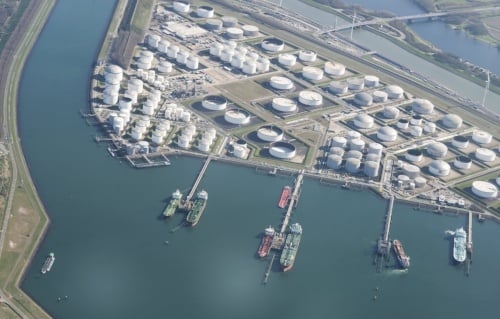3 min read
The Basic Building Blocks of A De Novo Fuel Hedging Program
As we're often asked to help companies develop de novo fuel hedging initiatives, we thought we would highlight the primary building blocks of a fuel...
In what has become a monthly feature of our blog, here is the November energy hedging Q&A. As always, if you would like us to provide a more in depth answer to any of these questions or if you’d like to ask us a question for next month’s Q&A, let us know. Comments below are more than welcome as well.
How can a small airline hedge jet fuel exposure?
There are numerous ways to hedge jet fuel. Before you can develop a sound fuel hedging strategy you need to quantify your exposure or risk. How many gallons or barrels per month do you consume? What percentage of your fuel do you need to hedge? Where do you consume the fuel, geographically? Are your flights all domestic or international as well? Do you purchase fuel based on a transparent index i.e. Platts, Argus or OPIS? Are you trying to fix your fuel cost, cap it? What is your credit worthiness? Do you have the cash to pay for options?
After you've addressed these, and many, more questions, you can then determine how best to hedge your jet fuel exposure whether it be by purchasing swaps, futures, call options, fixed forwards, collars, etc. In addition, you'll also have to determine whether you hedge with jet fuel instruments or heating oil, crude oil, etc. Many airlines tend to hedge their short-dated (i.e. < 1 year) risk with jet fuel swaps and options, their medium-term risk with heating oil swaps, options and futures and their long-dated (i.e. > 3 years) risk with crude oil swaps options or futures due to the fact that the jet fuel market isn't extremely liquid beyond one year. Likewise with heating oil beyond three to five years. Hedging jet fuel with crude oil and/or heating oil exposes an airline to basis risk, which is beyond the scope of this article, but we've briefly addressed it before in these posts.
What do you think crude oil prices will do in 2011?
The short answer is that they'll both increase and decrease. We're not price forecasters, never have been, never will be. Sure, we always have an opinion about the market but having a view of the market rarely leads to solid hedging/risk management decisions. That being said, to answer your question, as of this minute (and this opinion is subject to change at any moment, for obvious reasons), we're of the opinion that crude and products will most likely continue to increase in the near term but that a subsequent, significant price decline (perhaps not unlike the collapse we witnessed in late 2008 to early 2009) is quite probable as well. While demand is relatively strong in Asia and South America, we're of the opinion that the global economy is simply too fragile at this point in time to support high crude oil prices and if the current trend continues, high prices will cure high prices.
If you'd like to discuss how we can assist you with jet fuel or crude oil hedging or anything related, please don't hesitate to contact us.
3 min read
As we're often asked to help companies develop de novo fuel hedging initiatives, we thought we would highlight the primary building blocks of a fuel...

3 min read
As a continuation of our September and August Energy Hedging Q&A posts, here are the questions and our answers to this months Energy Hedging Q&A. As...
2 min read
A few weeks ago, we asked you, the wonderful readers of our blog, if you had any questions or issues related to energy hedging that you would like...